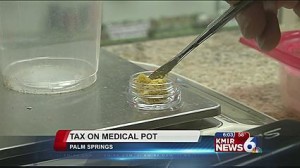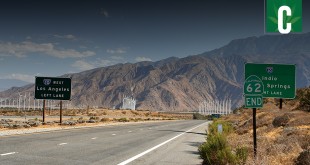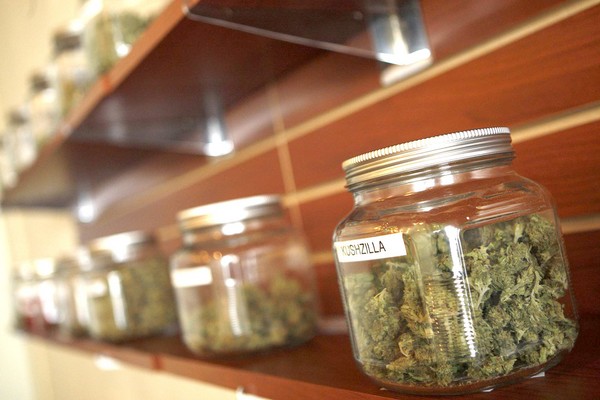The City of Palm Springs has set a tax rate for its medical marijuana dispensaries that could bring in nearly half a million dollars a year, according to city officials.
The city council voted Dec. 18 to levy a 10 percent tax on Palm Spring’s three legal dispensaries and a 15 percent tax on any illegal pot shops. The city is one of only a few in Southern California that allow medicinal cannabis dispensaries.
An audit of the three legal storefronts by the city determined that they generate about $4.5 million combined annually. A 10 percent tax would produce roughly $450,000 per year.

Tax collection could start as early as New Year’s Day, said City Attorney Doug Holland.
“We’d like to get the tax in place as early as we can,” Holland said.
The council’s decision enacted a November vote by residents, who chose by wide margins to impose a tax of up to 15 percent on dispensary proceeds. City staff later determined the 10 percent tax on legal shops would be appropriate.
The tax money will go toward police and fire costs, MMJ regulation and the expenses involved in shutting down illegal shops.
Dispensary owners here already face a dire situation. Palm Springs is the only city in Riverside County that allows pot shops, and the tax burden will pack a whallop. Together with other local taxes and credit card charges, shop owners lose more than 20 percent of their earnings with each sale.
“That’s just hard,” said Shanden Sessions, manager at Organic Solutions of the Desert. “That’s almost a quarter of our business, and we’re a nonprofit. It’s not like we don’t go out and do stuff for the community.”
Mayor Steve Pougnet, though, said the tax is fair. As the only city in the county with legal dispensaries, Palm Springs absorbs a large number of patients and the costs that come with them.
“It has doubled the business at our dispensaries and put extra costs on the city in regulating the program,” Pougnet said. “I think these are appropriate (tax) amounts that certainly help cover the cost of regulating the program.”
Medical marijuana has been legal in California since 1996, but municipalities are allowed to ban dispensaries under a state Supreme Court ruling issued early in 2013. Another appellate court ruling, which has not yet reached the high court, could make it possible for communities to ban all cultivation as well, essentially rendering the medical pot law null and void in much if not most of the state.
Palm Springs is one of a minority of cities, towns and counties that have chosen to regulate pot shops rather than ban them.
 California Marijuana Market Breaking "Marijuana News" from CA
California Marijuana Market Breaking "Marijuana News" from CA




